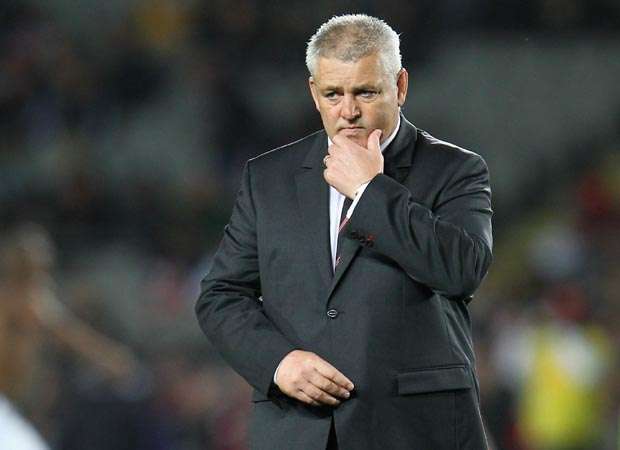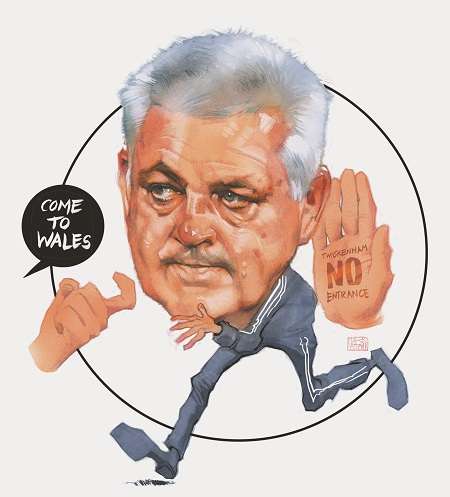
Other than that, the RFU have resisted the temptation to turn to New Zealand to enhance their coaching expertise – and given England’s lacklustre record since becoming world champions in 2003, you can only conclude it’s been to their detriment.
When it comes to making the most of windows of opportunity to sign proven non-English coaches, the RFU have simply looked away. The most costly instance of this has been their failure to sign Gatland and Shaun Edwards in 2007, despite the former All Black hooker and GB Rugby League star being right under their noses for five years at Wasps.
Gatland’s track record in coaching Lawrence Dallaglio and his Wasps outfit to two Heineken Cup titles, a European Challenge Cup, and three Premierships from 2000 to 2005 barely seemed to register on the RFU radar despite he and Edwards being a street ahead of any other coaches in European rugby.
At the time Dallaglio advocated that the RFU sign Gatland to fill the void left by Woodward, but to no avail. As England dithered, sacking Andy Robinson and then Brian Ashton, Wales struck decisively, signing Gatland and Edwards together in the immediate aftermath of their 2007 World Cup pool exit at the hands of Fiji.

With last weekend’s crucial 2015 World Cup pool victory over England fresh in the memory, the RFU’s performance director since 2006, Rob Andrew, must be ruing the day he let Gatland get away.
Gatland is not the only Kiwi coach making an impression at this tournament. Leaving him aside and Steve Hansen – who is at the helm of the All Blacks – there are a further five New Zealand coaches.
Of those Schmidt is the most successful, having taken Ireland to Six Nations titles in the last two seasons. Having beaten Canada and Romania comfortably, with Italy to come today, the Irish are limbering up nicely for their pool showdown with France next weekend.
Cotter has a more difficult job than his former Clermont coaching partner, Schmidt, but he appears to have injected a life-giving serum into Scotland. They look able to make the quarter-finals with the help of their sporran-wearing Springboks, WP Nel and Josh Strauss.
However, it is World Rugby/IRB which owe the New Zealand coaching contingent the biggest debt for their work in transforming the second and third tier nations at this tournament from doormats into doorsteps capable of tripping up those who don’t have their eyes open.
John McKee has turned Fiji around in a way that many of us did not consider possible. Props Campese Ma’afu and Manasa Saulo have made them into one of the most formidable scrummaging sides in the entire event, and their defensive organisation and shape meant that England, Australia and Wales had their work cut out to get on the front foot.
The Canadians have never lacked grit up front, but the former All Black full-back Kieran Crowley has brought a fluid attacking dimension that stretched the French, and had the Italians in all sorts of bother.
Georgia, meanwhile, showed that under the tutelage of Milton Craig (Counties Manukau) their forward power and defensive tenacity is capable of putting a spanner in the works of anyone. That included making New Zealand, the nation with the biggest and best coaching brains-trust in the game, work hard for the 43-10 win in Cardiff which made them the first qualifiers for the knock-out stage.






















